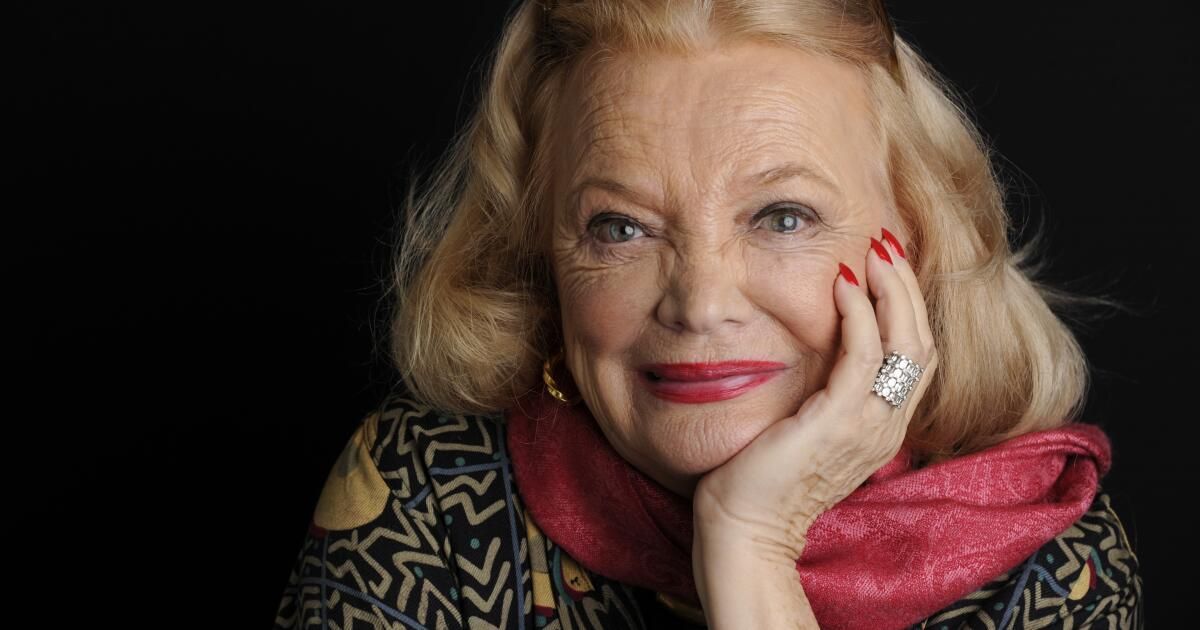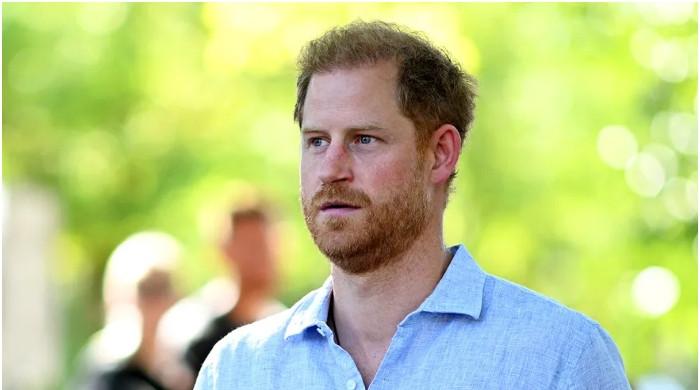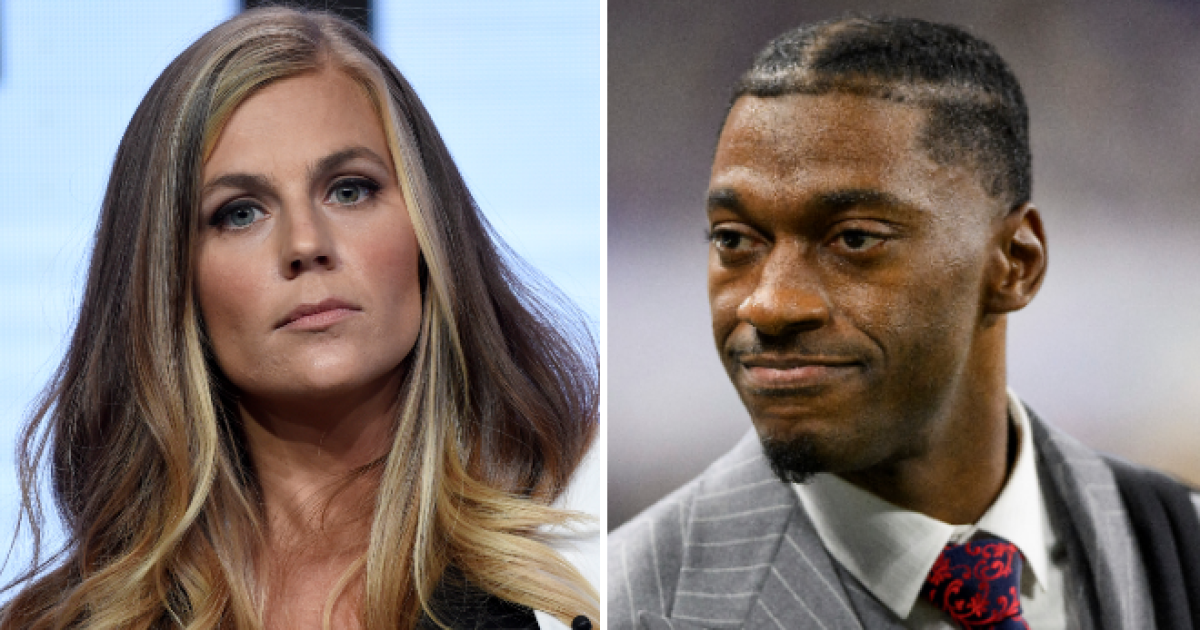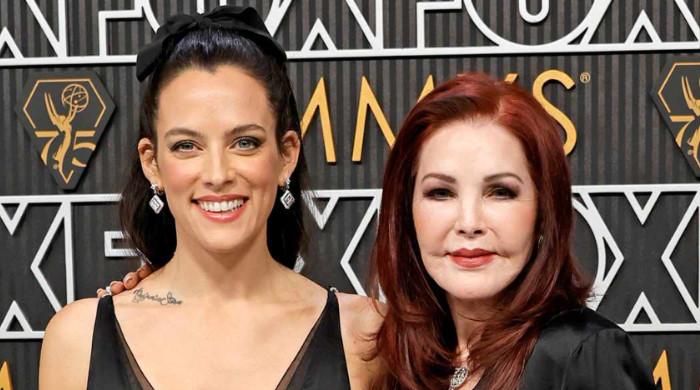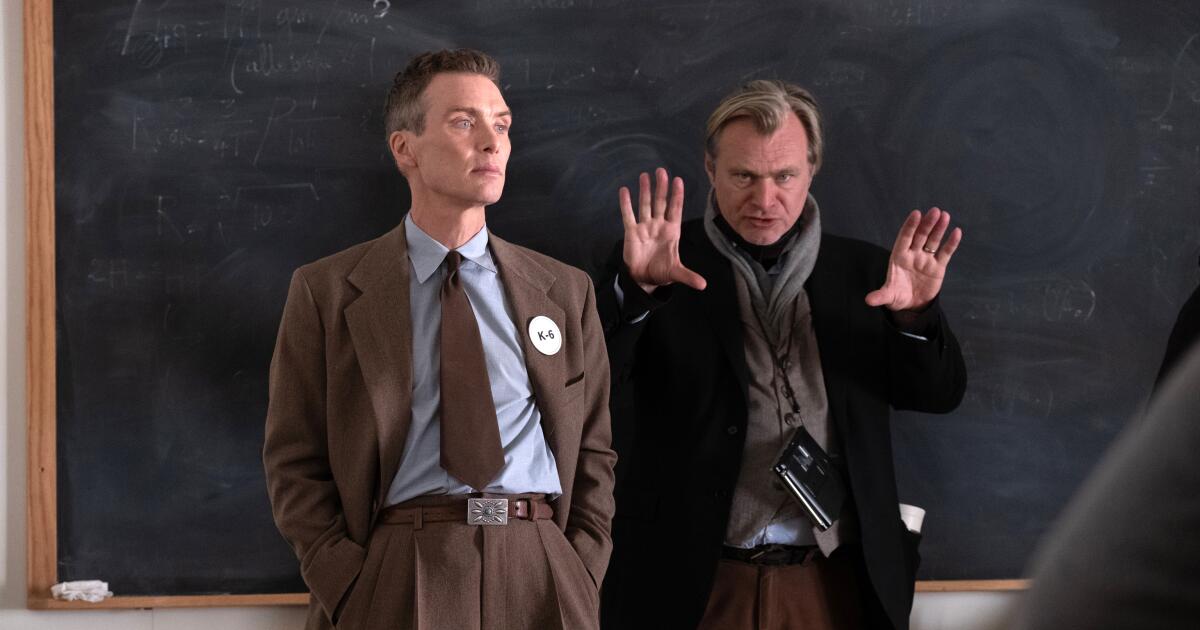Award-winning actress Gena Rowlands, whose appearances in “A Woman Under the Influence,” “Gloria” and “The Notebook” were among her many celebrated collaborations with her late husband, John Cassavetes, and their son, Nick, died Wednesday at her home in Indian Wells after a years-long battle with Alzheimer’s disease. She was 94.
The office of Danny Greenberg, Nick Cassavete's agent at WME, confirmed Rowland's death. No further details are available at this time.
An often-unsung actress of quality and consummate talent, Rowlands received rave reviews for her film and television work spanning six decades, especially for projects she worked on with her husband, earning Oscar nominations for her leading roles in his acclaimed 1974 drama “A Woman Under the Influence” and the 1980 crime thriller “Gloria,” and two films directed by her son, “Unhook the Stars” and “The Notebook.”
Rowlands played tough women, glamour girls and grande dames, with suburban housewives in between. She moved easily from the improvisational filmmaking style of John Cassavetes to the tightly controlled world of broadcast television.
“The great thing about being an actress is that you don’t just live one life, you live many lives,” Rowlands said when accepting her honorary Oscar in 2015. “You’re not stuck with yourself your whole life.”
Towards the end of her life, Rowlands battled Alzheimer’s disease and its signature dementia. In June 2024, while commemorating the 20th anniversary of “The Notebook,” Nick Cassavetes revealed his mother’s illness.
“He has had Alzheimer's for five years,” he said, adding: “He is in the midst of dementia.”
Despite a long series of widely praised performances, Rowlands never became a superstar and never appeared (and, perhaps, never wished she had appeared) in a blockbuster film. Nevertheless, many critics and contemporaries considered her to be one of the best actresses of the era.
“I think she’s the best movie actress of her generation or any other,” director Arthur Allan Seidelman told The Times in 2014. “Every moment she gives you is totally sincere and comes from a deep insight into a character. She has the ability to really get into that character.”
Not surprisingly, her career was intertwined with the work of her husband, whom she met at the American Academy of Dramatic Arts in New York in 1951 and married three years later. Their decades-long union resulted in ten films and three children before John Cassavetes' death in 1989.
“When I met John, I didn’t know whether he was in love with me or the strapless red velvet dress I was wearing,” she told The Times in 1996. “But from there, we went on to have 31 fantastic years, three children, a wonderful working relationship. We lived the way we wanted to.”
Rowlands and Cassavetes first worked together in 1955's “Time for Love,” in which she played a humble small-town girl and he played a traveling salesman who falls for her. In another appearance with Cassavetes, “Won't It Ever Be Morning?”, she plays a jazz singer who finds herself on the witness stand when her devoted manager is wrongly accused of murder.
As a senior member of Cassavetes' informal acting troupe, which included Peter Falk, Ben Gazzara and Seymour Cassel, Rowlands was often the face of her husband's films at a time when many women's roles were reserved for bombshell blondes.
Together they were hailed as independent film royalty, operating outside the controlling and predictable studio system. The couple mortgaged their Hollywood Hills home again and again to finance his films, she said, in an effort to remain independent of the strict reins of Hollywood.
After Cassavetes died in 1989 at age 59, her son asked his mother to star in a film he was making, 1996's “Unhook the Stars,” in which she played a middle-aged woman finally free of her family obligations.
Her late husband “wrote wonderful parts for women and of course I got them,” she told The Times at the time. “So it’s very emotional and satisfying to have a son put a script in my lap and say, ‘Mom, let’s make this movie. ’”
“Mom was modern,” Nick Cassavetes wrote in a 2000 article for the LA Times magazine. “God, she was beautiful. With her skinny legs and her Ungaro suits and her big Jackie O sunglasses. And that hair. Dad used to call her ‘Golden Girl.’”
Born Virginia Cathryn Rowlands in Madison, Wisconsin, on June 19, 1930, the actress was the daughter of Edwin Rowlands, a Wisconsin state senator, and Mary Allen Neal, a homemaker. Her older brother, David Rowlands, was also an actor. Her mother later pursued a stage career under the name Lady Rowlands.
Rowlands attended the University of Wisconsin before moving to New York City to study drama. She met John Cassavetes after auditioning for the American Academy at Carnegie Hall.
She also worked in repertory theater and made her Broadway debut opposite Edward G. Robinson in “Middle of the Night” in 1956. She made her big screen debut in José Ferrer's 1958 drama “The High Cost of Loving.”
Reading was what initially drew Rowlands to the dramatic arts. She was a sickly child and used her spare time to read voraciously. The lives of the characters she read about made her want to act. She found such a character in Mabel Longhetti, the increasingly erratic housewife in “A Woman Under the Influence,” who struggles to maintain her delicate mental equilibrium.
The drama is considered by many to be the greatest triumph of the Cassavetes-Rowlands collaborations, and earned Oscar nominations for both.
“It was a bit of a difficult role,” Rowlands said. “But I like difficult roles.”
Although she was always associated with Cassavetes' projects (including “Faces” and “Love Streams”), she also worked with other directors, including Woody Allen on “Another Women” and on several television projects, including “An Early Frost” and “The Betty Ford Story,” for which she won an Emmy. She also won Emmys for “Face of a Stranger” and “Hysterical Blindness.”
She won a Daytime Emmy for her role in “The Incredible Mrs. Ritchie.” In 2007, she appeared in “Broken English,” an independent film directed by her daughter Zoe Cassavetes.
The chance to play the troubled first lady Betty Ford in the 1987 TV movie also offered Rowlands the kind of challenge she appreciated. “I like playing people who have a very strong emotional commitment to something,” she told The Times in 1987.
Rowlands won an honorary Oscar for lifetime achievement in 2015. Her son presented her with the award. The Los Angeles Film Critics Association gave her a lifetime achievement award the following year.
Rowlands also endeared herself to a new generation of fans with her cameo in “The Notebook,” her son’s 2004 adaptation of Nicholas Sparks’ tearful love story starring Rachel McAdams and Ryan Gosling.
“I didn’t think it would have that kind of impact,” Rowlands said of the film in an interview with Variety in 2016. “I think it was a huge success because it was about the realization that love can last a lifetime. You don’t see it portrayed that way very often. In most movies you don’t get to see a story like that that goes from beginning to end with the possibility that love can be, maybe, eternal.”
In addition to her son, Rowlands is survived by her second husband, Robert Forrest, daughters Alexandra and Zoe, and several grandchildren. Her brother, David Rowlands, died in 2000.

